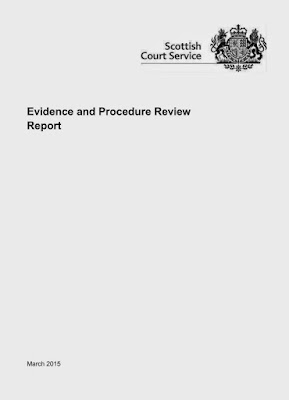 Coulson trial date moved for third time. THE TRIAL
of Andy Coulson, the former editor of the News of the World, for
alleged perjury is due to start this Friday 15 May 2015 after being
moved several times.
Coulson trial date moved for third time. THE TRIAL
of Andy Coulson, the former editor of the News of the World, for
alleged perjury is due to start this Friday 15 May 2015 after being
moved several times.
The trial - HMA v Andrew Coulson – is the only case
resulting from a multi million pound Scottish Police operation condemned
“Operation Rubicon” .
The trial is expected to last up to four weeks and cost taxpayers more than two million pounds.
Coulson, who went on to become David Cameron’s
director of communications after leaving the News of the World, is
accused of lying on oath during the trial of Solidarity party leader and
former MSP, Tommy Sheridan, for perjury in Glasgow in December 2010.
Sheridan was later convicted of perjury and sentenced to three years in
prison.
Mr Coulson denies all of the charges against him
Scotland's Judicial Office initially said: "The
trial diet in the case of HM Advocate v Andrew Coulson, previously set
for Monday 11 May 2015, has been adjourned. The case will now call at
10am on Tuesday 12 May at the High Court in Edinburgh (Lawnmarket Court
3), to deal with any outstanding procedural matters and to fix another
date for the trial to proceed."
The Judicial Office then updated their statement with another change of date: "A
new trial diet in the case of HM Advocate v Andrew Coulson has been
fixed following a hearing at the High Court in Edinburgh. The case will
call at 10am on Friday 15 May 2015 at Edinburgh High Court (Lawnmarket
Court 3).”
Coulson, the former editor of the News of the World
who became Downing Street director of communications after Cameron came
to power in 2010, was due to face a jury during the last weeks of this
year's general election campaign, however legal argument led to the case
being postponed until this week, removing a potential political
embarrassment for the prime minister before the polls closed.
Coulson is charged with three counts of perjury
relating to testimony he gave in the 2010 trial of Scottish politician
Tommy Sheridan. The former News International journalist, who was
working for Downing Street at the time, was called by the defence to
answer questions about his role at the now defunct News of the World and
his knowledge of the illegal interception of voicemails carried out by
the newspaper's staff while he was editor. Sheridan was later convicted
of perjury and sentenced to three years in prison and Coulson resigned
from the government a month later.
In the wake of the 2011 phone-hacking scandal,
Strathclyde Police launched "Operation Rubicon" to investigate
allegations of misconduct at Sheridan's trial. As a result, in 2012
seven Scottish police officers detained the former editor at his home in
Dulwich, South London at 6.30am and drove him to Glasgow. Shortly
afterwards he was arrested and charged.
Also facing legal action are the paper's former
Scottish editor Bob Bird and senior reporter Douglas Wight. However
Lord Advocate Frank Mulholland of the Crown Office & Procurator Fiscal Service (COPFS) has not announced any decision on whether prosecutors will proceed in the remaining two cases.
A similar operation run in England & Wales by the
Crown Prosecution Service called "Operation Elveden", costing the
public over £20 million has all but collapsed.
Nine out of the remaining twelve prosecutions against
journalists – which included Andy Coulson - have been dropped by the
Director of Public Prosecutions, and the entire operation branded an
expensive taxpayer funded political witch hunt against the media.
Four more reporters were cleared at the Old Bailey of bribing public officials, taking the total number found not guilty by a jury to 14
An urgent review of
the £20 million investigation was ordered last month, after the Court
of Appeal quashed the conviction of former News of the World reporter
Lucy Panton, who was the first reporter to be found guilty.






